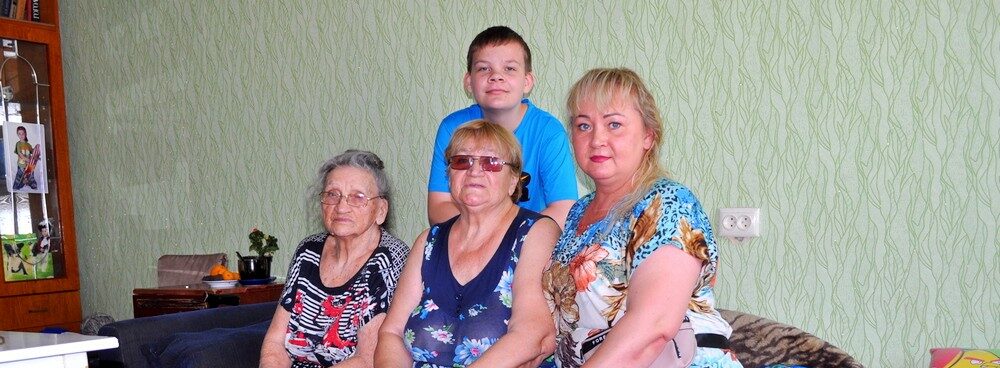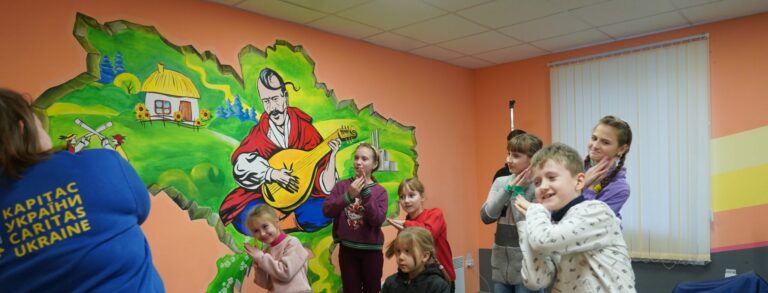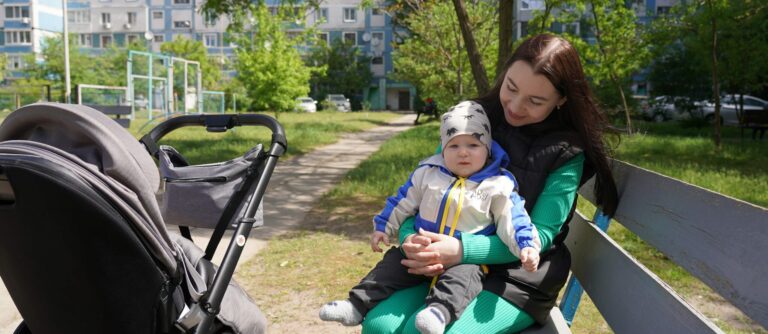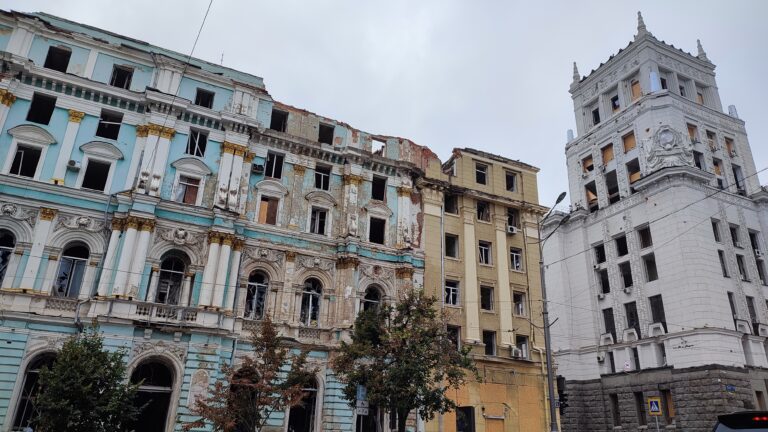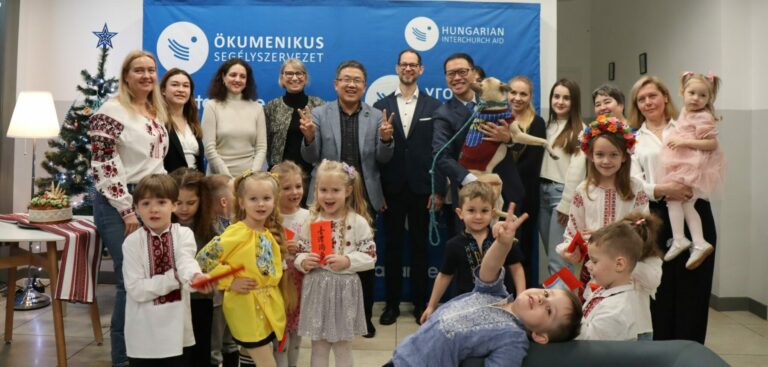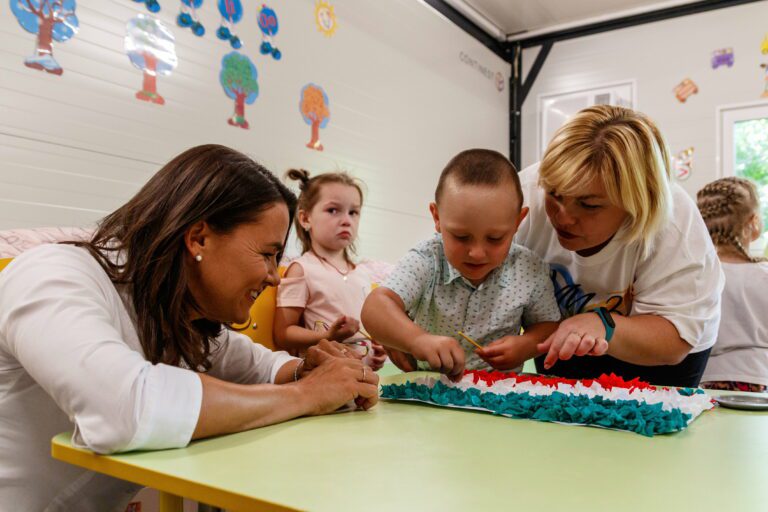Occupied, flooded & shelled: cash assistance to help build resilience
The large Mazuniny family has experienced war from way too close. Having lived their whole lives in Khersonska Oblast, the challenges they’ve faced made them both stick together as a family and cling to their place of origin. In their struggle to survive and to live a life as close to normal as possible, the family – from youngest Mykyta, aged 9 to oldest Tetiana, aged 91 – have received cash assistance from the Ukraine Response Consortium-partner on the ground: Hungarian Interchurch Aid (HIA).
During the occupation of the city, the family stuck together and helped each other. The younger of the sisters, Liudmyla (72), moved closer to her elder sister, Tetiana (91), as it was easier to overcome difficulties together. “We lived in a summer house near Oleshky, on the left bank of the Dnipro, close to Kherson. The closer you are to family, the easier it is to survive the stress that the war brings upon us.” And stress there was. The military situation changed in November, and suddenly, they were separated from the rest of their family in Kherson.
Remaining in the “dacha” cut off by the occupying army, the worst was yet to come. “There was no electricity. We had fruits and vegetables from our garden and orchard. Neighbours came and offered leftovers from their gardens” so at least they had the most basic necessities – food. Liudmyla also went fishing – there was a lot of fish that summer – and shared it with those neighbours who had also become hostages of their summer houses.
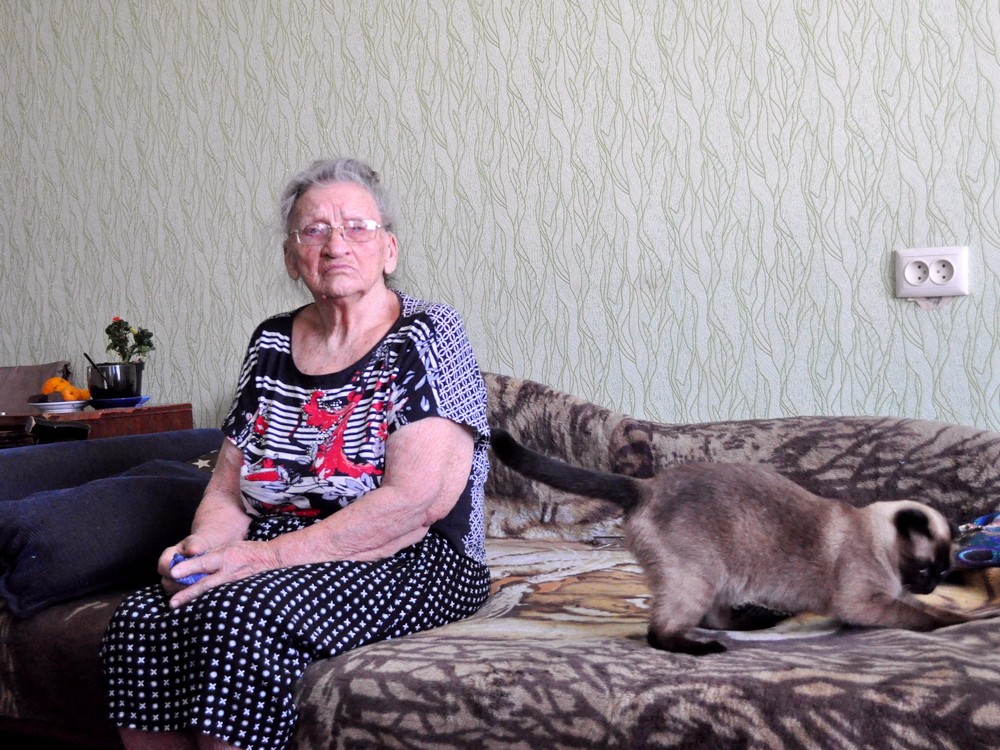

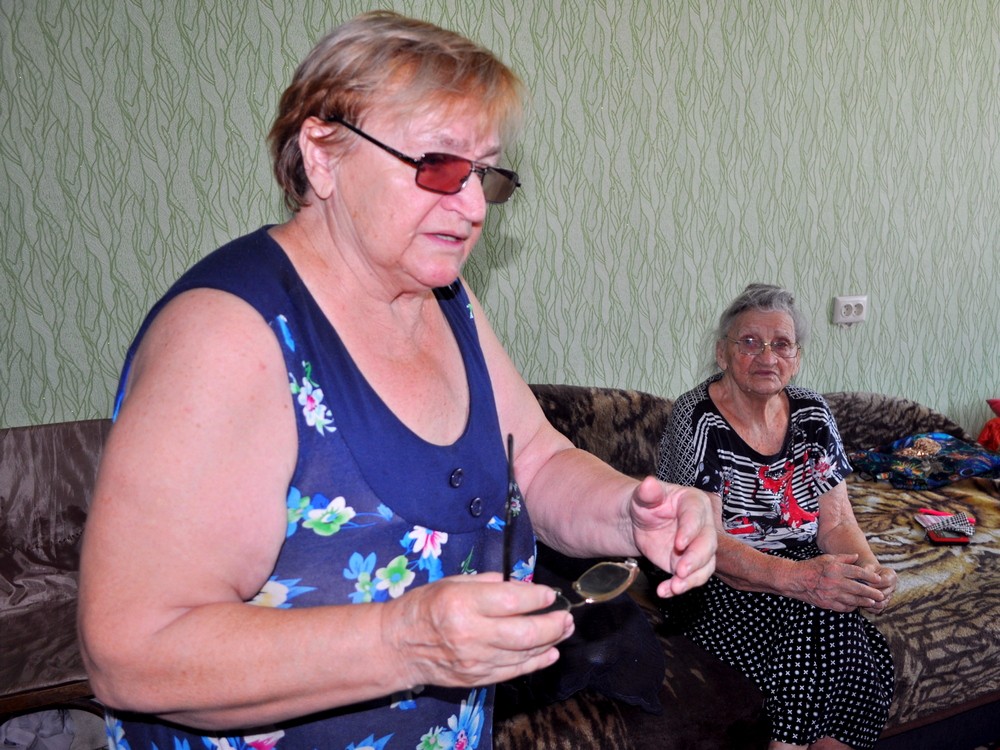

“We lived this way from November to June at the dacha”. And they could have lived like that longer. But the morning of June 6, 2023 happened, when the sisters woke up to their house being flooded by the Dnipro. “I wasn’t even scared,” says Liudmyla, “I was no longer afraid…” She inflated the rubber boat and threw the things she could find – some documents, a flashlight, a knife, canned food. She spent an hour and a half moving her elderly sister into the boat, meanwhile, the water kept on rising. “It was running like a tap!” recalls Tetiana. They were joined by a stray dog and their Siamese cat.
Not knowing what happened exactly, their plan was to tie the boat to a mulberry tree and wait for the flood to recede. Unfortunately, it was becoming worse by every minute. The Dnipro carried debris, wooden houses, trees, frightening the ladies. Then a drone flew towards them “It kept flying over us, and I was waving my hands, not knowing what this drone had brought, maybe a mine?” Fortunately, it was a message from the right side of the river: evacuation was coming for them, but they should follow the drone. So Liudmyla obediently paddled, until a Ukrainian boat found them and brought them to safety alongside many of their neighbours who were trapped in a similar way.
Unlike the flood caused by the destruction of the Nova Kakhovka HPP, their problems did not vanish after only a few weeks. While the elderly sisters, Liudmyla and Tetiana recall the events as if they were in some kind of Hollywood movie, the consequences of the occupation and the flooding continue to live with them – and not just them, all residents of this region carry similar traumas in their emotional backpacks. Especially their health has suffered: all the medicine, their glasses and other necessities were washed away into the sea, nevertheless, those were replaced. But Liudmyla needed urgent surgery, a result of not getting any medical attention for more than a year.
It cost them over 3000$, which they did not have, but were able to borrow. “We didn’t think about how we would pay it back, we had to save our mother” – says Liudmyla’s daughter Olena – “When we found out about the opportunity to receive cash assistance, we immediately applied as a family.” With 5 family members eligible, the support they received from the USAID-funded Ukraine Response Consortium was a considerable amount. Again, family became a safety net for them in an ocean of troubles – and pooling all they had together, they were able to cover the debts for the operation and even more!
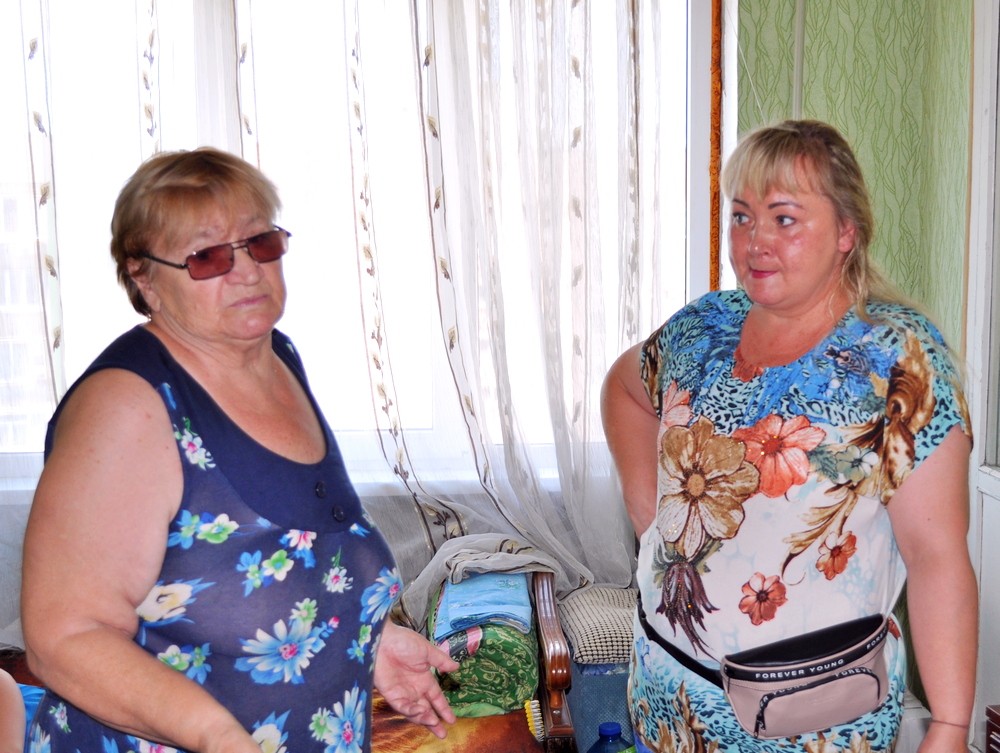

The family’s small budget would not been able to bear such a weight, but financial support from the Ukraine Response Consortium made it possible to improve Tetiana’s hearing by purchasing a hearing aid. And with the rest of the money, they decided to buy a gas stove, which provides the family with hot food when long power outages make it impossible to use the apartment electric stove. They live in Kherson now – luckily, their home has not been hit by the daily shelling the city receives.
This large and hardworking family never lost its spirit and humour, but it certainly faced many challenges to survive the difficult events. Especially Tetiana and Liudmyla, whose struggle is made even more difficult by their respectable age. It is due to these reasons that Hungarian Interchurch Aid – funded by BHA-USAID and supported by Consortium partners World Vision and ACTED – concentrates to provide assistance in regions where the realities of war have made life so hard.
This story was made possible by the generous support of the American people through the United States Agency for International Development (USAID) under Grant Agreement “Ukraine Response Consortium: Providing Multi-Sectoral Humanitarian Assistance to Conflict-Affected Populations in Ukraine (2023-2024)”
